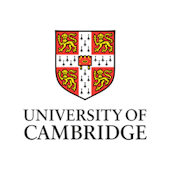Jan joined the Woolf Institute as a Junior Research Fellow in May 2015. He is conducting research for the Trust project in Berlin and Rome, investigating how crises are experienced and narrativised. Jan analyses the impact of crisis perceptions on trust in the state and in public institutions, on the one hand, and on practices of intercultural community life and solidarity, on the other. The project also explores Paris and London.
Between July 2015 and June 2016, Jan conducted research in Germany. In Berlin, Jan worked predominantly with initiatives responding to the so-called refugee crisis, which began to dominate public life in Germany in the summer of 2015, when up to 10,000 people fleeing war and poverty entered the country each day. An important part of his research in the city concerned how local and national authorities responded to the challenge and to declining trust in state institutions to manage public life. He has also explored the Pegida movement in Dresden – an anti-establishment, anti-Islam platform that came into existence in 2014 – and researched how a small town community responded to the arrival of large numbers of refugee strangers in the northern German Harz Mountains. Jan is interested in how perceptions of state failure impact on local social relations and community life in a country whose citizens hold traditionally strong beliefs in the effective management by public institutions. He has written about his research in Berlin’s multicultural Neukölln district for the Woolf blog.
In June 2016, Jan moved on to Rome, where he is working with faith-based integration projects for refugees whose asylum applications have been granted, and with grassroots initiatives supporting African migrants travelling under the state radar from the south of Italy on to France and Germany. The second focus of his work in Rome regards the success of the anti-establishment protest platform Movimento Cinque Stelle (Five Star Movement). In June 2016, the Movement won the municipal elections for the mayor of Rome and attained a large majority in the city council. The Movement’s rapid success – it was founded only a few years ago – depends in large part on the profound distrust many Romans have towards their local institutions, plagued by corruption and organised crime. Jan is interested in the ways in which the Movement’s revolutionary practice of web-based participatory democracy negotiates the constraints of institutionalised politics, and in the notions of citizenship that motivate the supporters and activists who seek to reconnect Italians with their public institutions.
Before joining the Woolf Institute, Jan was a doctoral student at the University of Cambridge, Division of Social Anthropology. His thesis explored the aftermath of an earthquake that hit the Italian city of L'Aquila in April 2009. Jan analysed the social and cultural repercussions of the disaster, and explored emergent practices of local citizenship as dimensions of recovery efforts. He conducted ethnographic research in L'Aquila between January 2012 and May 2013, following earthquake survivors in their attempts to reconstitute themselves as subjects with political agency wielding control over their lives in the wake of a disenfranchising government intervention.
He has presented his research at major international conferences, and has published articles based on his doctoral thesis. Jan is preparing a monograph based on his thesis, and is editing a couple of books on citizenship during austerity and on cultural difference in Germany. At the Division of Social Anthropology, Jan has supervised students in The Anthropology of Cities and Space; Political Economy and Social Transformations; and The Anthropology of Europe. He has supervised undergraduate dissertations in Social Anthropology and Sociology.
Building on his study of disaster experiences and emergency interventions in post-earthquake L’Aquila, at the Woolf Institute, Jan examines how citizens experience their capacity for political participation and cross-cultural solidarity during an era perceived as a major crisis.
Experience
-
–presentResearch Fellow, University of Cambridge
- Website
- Article Feed
- Joined


